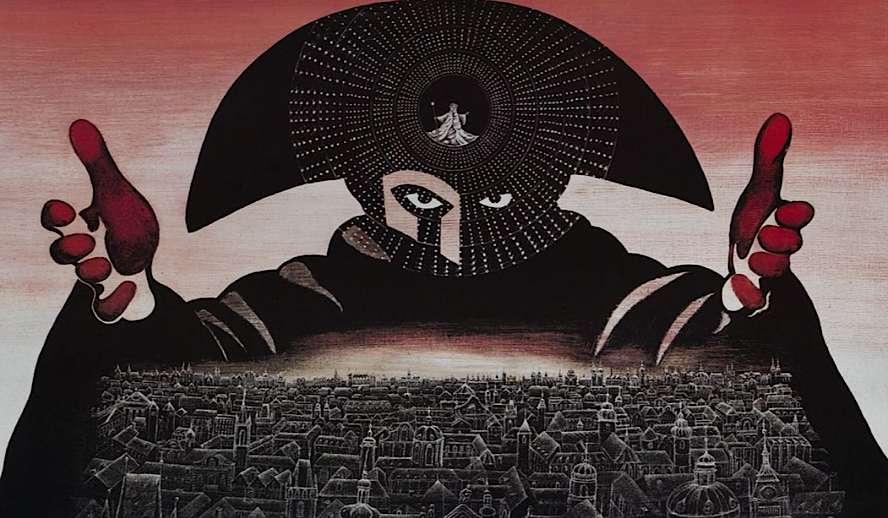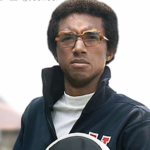Table of Contents

Photo: ‘Amadeus’
“The man, the music, the madness, the murder, the motion picture… everything you’ve heard is true.” These are the words that adorn the poster for director Miloš Forman’s sprawling operatic examination of the fated rivalry between legendary composer Wolfgang Amadeus Mozart and his forgotten emulous contemporary Antonio Salieri; ‘Amadeus’ (1984). Despite what that tagline may lead one to believe, the film’s first four “M’s” rely upon keen historical embellishment and fantastical hyperbole in order to weave such a grandiose tapestry of sacral vengeance and subterfuge.
But as for the final “M”, the motion picture itself, there is no exaggeration necessary nor overstatement possible, as it remains one of the most sumptuous epics in the history of film. The winner of eight Academy Awards (including Best Picture) and frequently held as one of the greatest works of its era, the film’s legacy has inexplicably begun to taper off over the past twenty years, no longer uttered amongst the ilk of ‘The Wizard of Oz’ (1939) or ‘2001: A Space Odyssey’ (1968) as one of the cornerstone classics of American Cinema. Nonetheless, the film undoubtedly deserves the same recognition as its fabled forebears, a lavish monument to the towering legacy and unmatched genius of Mozart as well as a timeless fable about the ties that bind ambition and revenge.
Related article: ‘In the Heights’ – Behind the Scenes and Full Commentary/Reactions from Cast & Crew
Related article: The Hollywood Insider’s CEO Pritan Ambroase: “The Importance of Venice Film Festival as the Protector of Cinema”
So What’s It All About? – A Summary of ‘Amadeus’
Despite its cultural reputation as “the Mozart movie”, ‘Amadeus’ actually centers upon Salieri, the tragically misguided and silently resentful court composer for Emperor Joseph II of Austria. The film begins with Salieri as a decrepit old man now confined to a mental institution after attempting to take his own life and confessing to the murder of Mozart. A young priest named Vogler seeks Salieri out and asks if he’d like to confess his crimes to God, bringing the old man back to his earliest memories as a devout child with an unquenchable passion for music. “I can’t think of a time I didn’t know his name”, Salieri says of the celebrated musical prodigy Mozart – who composed his first concerto at age 5 and performed in front of nearly every emperor in Europe before the age of 10. Salieri chose to devote his life and his chastity to God in the hopes that He may grant him the ability to speak His words through the composer’s music.
He quickly rose in status to become an esteemed court composer, his life-changing in an instant upon the unexpected arrival of Mozart in Vienna. Salieri is shocked to discover Mozart little more than a foul-minded impish man-child with a screeching squeal of a laugh, nevertheless gifted with a divine musical ability not seen before or after in human history. He is vulgar and vile but, as he explains, his music is not, and Mozart swiftly catches the attention of the Austrian Emperor along with the greater citizenry of Europe. Spiteful and vindictive, Salieri sets out to ruin Mozart from the shadows, abandoning all faith in God after realizing He blessed such an obscene “creature” with celestial talent rather than himself.
Related article: MUST WATCH – The Hollywood Insider’s CEO Pritan Ambroase’s Love Letter to Black Lives Matter – VIDEO
Subscribe to The Hollywood Insider’s YouTube Channel, by clicking here.
The audience is brought along to witness the production of some of Mozart’s most legendary operas such as “The Marriage of Figaro” and “Don Giovanni”, Salieri scrupulously plotting the composer’s demise while simultaneously becoming more and more convinced that he may truly possess the greatest artistic mind in history. Salieri dresses up as the ghost of Mozart’s deceased father and requests he write him a requiem for the dead, planning on claiming the piece as his own and unveiling it at Mozart’s funeral after he has killed him. The piece winds up consuming Mozart, ignoring his various debts and failing health in favor of what he believes may be his greatest orchestration yet. At a performance of his latest opera “The Magic Flute”, Mozart collapses from exhaustion and is guided home by none other than Salieri. The former, too weak to move, commissions the latter to help finish the requiem by way of dictation – the pair working on the piece without rest until the next morning.
Mozart’s wife and child return home only to find that Mozart has died, locking away the requiem and forcing Salieri to leave empty-handed. Mozart is then unceremoniously buried in an unmarked mass grave outside Vienna, a far cry from the grand requiem Salieri had envisioned. Left speechless by the evil of the story, the young priest stares gauntly at the withering old man in front of him. “Your merciful God,” says Salieri to the priest, “He destroyed His own beloved, rather than let a mediocrity share in the smallest part of His glory. He killed Mozart and kept me alive to torture! 32 years of torture! 32 years of slowly watching myself become extinct. My music growing fainter, all the fainter till no one plays it at all, and his…” Salieri trails off as he is wheeled down the halls of the asylum, joyously “absolving mediocrities everywhere” as he goes and claiming himself their patron saint, the screen fading to black before Mozart’s fiendish laugh is heard echoing one last time.
Limited Time Offer – FREE Subscription to The Hollywood Insider
Murray Abraham and Tom Hulce Deliver Two of the Screen’s Most Meticulously Crafted Performances
Be it Peter O’Toole in ‘Lawrence of Arabia’ (1962) or Martin Sheen in ‘Apocalypse Now’ (1979), epic films are often only as good as the performance at their center no matter how proficient the rest may appear. The same is true for ‘Amadeus’ – only here it is twofold; both F. Murray Abraham and Tom Hulce offering up some of Cinema’s greatest performances as Salieri and Mozart respectively. After amassing bit-roles in cherished classics like ‘Serpico’ (1973), ‘All the President’s Men’ (1976), and ‘Scarface’ (1983), Abraham burst off the screen in ‘Amadeus’, emphatically announcing himself as one of Hollywood’s best-kept secrets and scoring the Best Actor Oscar at the 1985 Academy Awards.
His duel performances as both a sorrowful old stooge consigned to flames of woe by the lingering specter of Mozart and a misguided young man whose grasp far exceeded his reach both equal parts relatable and detestable. The two Salieri’s often appear in conversation with one another, the elder deftly pleading with his youthful counterpart to realize the error of his ways while seemingly holding out a shred of hope that the story may reach a different conclusion by the time he is done telling it. Abraham manages to craft one of the screen’s most tragic protagonists, bridging the gap between hero and villain while ultimately succumbing to his own inner demons.
Even if the film were solely championed by Abraham and his immaculately complex take on Salieri it would remain a full-fledged masterpiece, but Hulce’s prolific and tormented Mozart serves as his perfect mortal foil. All but unknown at the time, Hulce beat out the likes of Tim Curry, Mark Hamill, Mel Gibson, Mick Jagger, and Andrew Lloyd Webber for the role of Mozart. Though he would go on to star in films like ‘Fearless’ (1993) and ‘The Hunchback of Notre Dame’ (1996), nothing would eclipse his breakout performance in ‘Amadeus’ – expertly juxtaposing the smarm arrogance of the famed composer with his boyish need for validation. Additional cast members Elizabeth Berridge, Roy Dotrice, Simon Callow, and Jeffrey Jones (yes, Ed Rooney from ‘Ferris Bueller’s Day Off’ (1986) had a genuinely impressive supporting role in a prestige Best Picture winner) are all memorable in their own right, but each are simply outshined by Abraham and Hulce in quite literally every scene the two appear in.
Related article: The Hollywood Insider’s CEO Pritan Ambroase: “The Importance of Venice Film Festival as the Protector of Cinema”
Related article: The Masters of Cinema Archives: The Hollywood Insider Pays Tribute to ‘La Vie En Rose’, Exclusive Interview with Director Olivier Dahan
Related article: – Want GUARANTEED SUCCESS? Remove these ten words from your vocabulary| Transform your life INSTANTLY
Astounding Technical Precision Sure to Whisk Audiences Away to 18th Century Vienna
For as talented the actors caught on camera, so too are the figures behind the scenes responsible for capturing it. Legendary director Miloš Forman poured his entire heart and soul into ‘Amadeus’, taking what may have been the biggest risk of his career in deciding to adapt one of the most celebrated plays of the past quarter-century. After enjoying immense international success as one of the foremost stewards of the Czechoslovakian New Wave, creating thought-provoking experimental works like ‘Loves of a Blonde’ (1965) and ‘The Firemen’s Ball’ (1967), Forman came to the United States where he made the exemplary ‘Taking Off’ (1971) before concocting his most acclaimed work to date; the Best Picture-winning classic ‘One Flew Over the Cuckoo’s Nest’ (1975).
Many assert this film as the peak of Forman’s cinematic powers, his undisputed cumulative masterpiece, but while the film is certainly a truly spectacular work of art, it is still overshadowed by ‘Amadeus’. While choosing between ‘Cuckoo’s Nest’ and ‘Amadeus’ may feel like picking a favorite chapter in ‘The Godfather’ duology (1972-1974), the latter remains one of the foremost achievements in direction to date – giving it the slight edge it needed to outshine Jack Nicholson’s indelible McMurphy and his gang of misfit psychiatric patients. Aided along by an excellent screenplay from Peter Shaffer and opulent cinematography from Miroslav Ondříček, ‘Amadeus’ has endured as a true spectacle to behold almost 40 years since its release.
A Transcendent Experience Amongst Cinema’s Best
Few films are able to represent all that Cinema can hope to inspire better than Forman, Abraham, and Hulce accomplished in ‘Amadeus’. The unfettered joy of getting to see Mozart’s greatest operas brought to life in the very theater they were first conceived in, coupled with the overwhelming sadness that accompanies the realization one of history’s preeminent talents died many decades before his time because of the callow malice of a jealous fool, is sure to linger with audiences returning to the film after many years the same way it will for all those yet to discover ‘Amadeus’ for themselves. As any passerby on the street may readily admit, the Academy Awards do not make a habit of awarding the actual best film of the year with the Best Picture Oscar, but it’s quite possible that never were they more right than when they chose ‘Amadeus’ as the high-water mark of 1984. With any luck, the same sense that possessed the Academy all those years ago will find its way into the modern moviegoing populus, and ‘Amadeus’ will finally receive its due as one of the greatest films ever produced.
My only criticism? Too many notes!
By Andrew Valianti
Click here to read The Hollywood Insider’s CEO Pritan Ambroase’s love letter to Black Lives Matter, in which he tackles more than just police reform, press freedom and more – click here.
An excerpt from the love letter: The Hollywood Insider’s CEO/editor-in-chief Pritan Ambroase affirms, “The Hollywood Insider fully supports the much-needed Black Lives Matter movement. We are actively, physically and digitally a part of this global movement. We will continue reporting on this major issue of police brutality and legal murders of Black people to hold the system accountable. We will continue reporting on this major issue with kindness and respect to all Black people, as each and every one of them are seen and heard.
Just a reminder, that the Black Lives Matter movement is about more than just police brutality and extends into banking, housing, education, medical, infrastructure, etc. We have the space and time for all your stories. We believe in peaceful/non-violent protests and I would like to request the rest of media to focus on 95% of the protests that are peaceful and working effectively with positive changes happening daily. Media has a responsibility to better the world and The Hollywood Insider will continue to do so.”
Ways to support Black Lives Matter Movement to end systemic racism
More Interesting Stories From The Hollywood Insider
– Want GUARANTEED SUCCESS? Remove these ten words from your vocabulary| Transform your life INSTANTLY
– Compilation: All James Bond 007 Opening Sequences From 1962 Sean Connery to Daniel Craig
– Do you know the hidden messages in ‘Call Me By Your Name’? Find out behind the scenes facts in the full commentary and In-depth analysis of the cinematic masterpiece
– A Tribute To The Academy Awards: All Best Actor/Actress Speeches From The Beginning Of Oscars 1929-2019 | From Rami Malek, Leonardo DiCaprio To Denzel Washington, Halle Berry & Beyond | From Olivia Colman, Meryl Streep To Bette Davis & Beyond
– In the 32nd Year Of His Career, Keanu Reeves’ Face Continues To Reign After Launching Movies Earning Over $4.3 Billion In Total – “John Wick”, “Toy Story 4”, “Matrix”, And Many More
amadeus, amadeus, amadeus, amadeus, amadeus, amadeus, amadeus, amadeus, amadeus, amadeus, amadeus, amadeus, amadeus, amadeus, amadeus, amadeus, amadeus, amadeus, amadeus, amadeus, amadeus

Andrew Valianti is a writer and an aspiring producer-director, and all-around film lover. While writing both features and reviews for the Hollywood Insider, Andrew has focused on the intersection of cinema and politics as they relate to empowering diverse stories and viewpoints. Through both study and practice, Andrew has seen first hand the many ways in which film and media can have a positive and meaningful impact on everyday lives. His personal views align with the Hollywood Insider, as he views journalism as a means to empower and mobilize positive change rather than spread gossip or negativity. He believes that art ignites action and has sought to pursue stories that further this goal.








